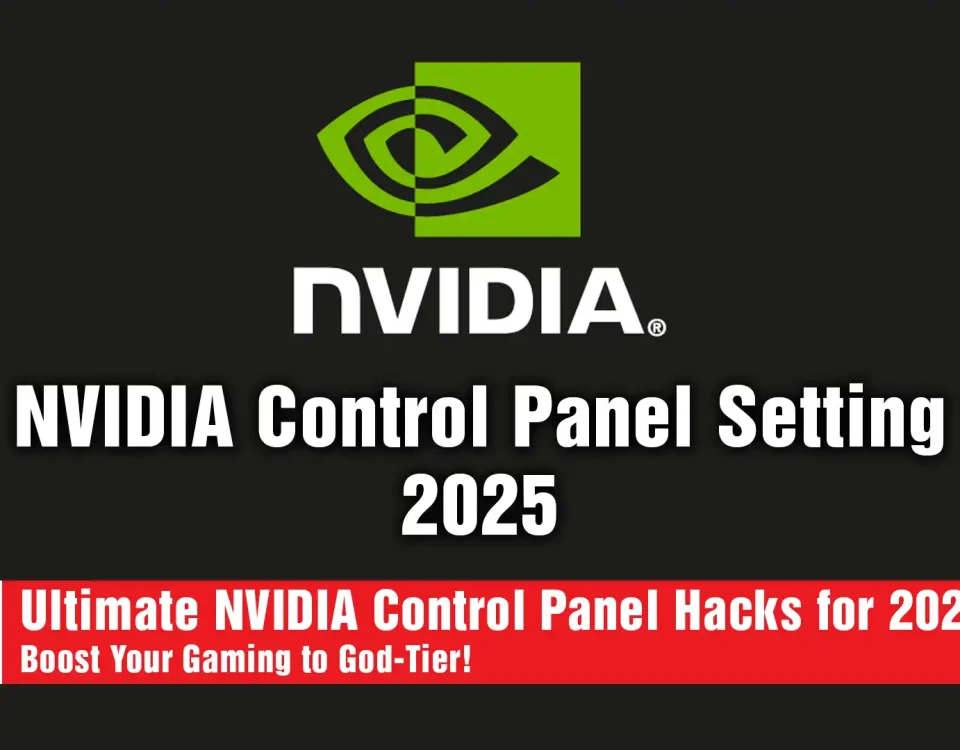Is Ai PC a revolutionary technology in the future?
What is the difference between AI PCs that are made with artificial intelligence hardware and normal PCs, and will the technology evolve due to them in the future?
These days, all companies are trying hard to enter the world of artificial intelligence, and we even see a fierce competition in this field between them. However, the introduction of ChatGPT and its widespread acceptance by users made artificial intelligence find its place in various industries. Among the various companies that are active in the application of artificial intelligence in their equipment, we see the intense activity of personal PC manufacturing companies that are trying hard to achieve this goal. The result of their activity can be seen at CES and Unpacked Samsung 2024.
Although a significant range of new technologies were showcased at these events, the main focus of all of them was the application of artificial intelligence in mobile phones, laptops and computers. First of all, mobile phones were introduced and offered with features and capabilities of artificial intelligence, but the idea of CPUs equipped with artificial intelligence in laptops and personal computers drives our minds to the endless possibilities of this amazing technology.
To have such an expectation is to some extent misleading or too early. As we have seen in recent technology exhibitions, many companies put forward ideas that are not clear what benefit and advantage it has for the end user. Currently, companies such as Intel, AMD, and Nvidia have shown that they are focused on developing AI-centric hardware by adding Neural Network Processing Unit (NPU) to their latest processors.
But the experts' questions about what special features these processors have and what they do are met with vague answers. Companies often point to things that may be possible in the future, but do not have immediate, tangible user-centric benefits. Stay with us in the rest of the article to be aware of the different angles of the presence of Ai PCs in future technology.
But what does AI PC really mean?
An artificial intelligence PC (AI PC) can be considered as a supercharged personal computer that has the right hardware and software to perform professional tasks based on artificial intelligence and machine learning. In fact, the main story revolves around the mathematical calculations of engineering sciences, data cleaning and sifting, and the power required to perform machine learning and artificial intelligence tasks.
These tasks cover a wide range of generative AI application workloads such as Stable Diffusion, intelligent chatbots with local language models, comprehensive data analytics, training AI models, running complex simulations, and AI-based applications.
In addition to powerful CPUs and GPUs, as well as ample RAM and fast storage options, AI computers are equipped with a new piece of hardware: the NPU, or Neural Processing Unit, which is specifically designed to perform AI turbocharging tasks.
Previously, we saw that Intel and Microsoft worked together to redefine artificial intelligence computers and added the physical "CoPilot" key to the new keyboards of many laptops so that personal computers can use CoPilot's artificial intelligence capabilities separately and locally. But measuring NPU power and performance requires meeting standards and requirements that are not easily achieved in a short period of time.
Therefore, the main goal is to build and develop systems that are faster and more efficient in performing artificial intelligence tasks and are optimized in terms of energy consumption. As a result, an Ai PC helps the user to store and process information locally without having the Internet, this can increase the security of their computer..
What is NPU?
Neural Processing Unit, or NPU for short, is a specialized processor that has been developed to manage the heavy tasks of artificial intelligence that were previously dedicated to the graphics card.
Current GPUs can handle AI workloads, but they require a lot of energy and effort. For us users, laptop battery life is often very important, and high pressure on the graphics card is not a desirable element. Even on the desktop, running programs slows down and causes a lot of trouble.
Of course, it is still not possible to perform all the tasks that the GPU has, by the NPU. The current performance of the neural processing unit and graphics card is more like a mutual cooperation: they work in tandem to reduce processing time while limiting power consumption.
To understand the computing speed of these chips, you only need to keep in mind that their processing volume per second is 10 times higher than traditional CPU cores. For this reason, they are great for implementing large language models or complex algorithms.

Thus, NPU offers users a smoother workflow along with CPU and GPU. In general, NPUs work similar to the platforms available in the market such as Chat GPT and DALL-E, but their biggest difference is that their algorithms and language system are local on the chip, but in the rest of the existing platforms, this information must be Cloud processing.
In the future, not only personal computers will have AI hardware enabled, but most top-of-the-line laptops from companies will also have some form of NPU, which is expected to hit the market this year. This evolution happens even for smartphones, such as Samsung's Galaxy S24, which offers many applications of artificial intelligence (transcription, translation, video content production, and image editing).
Next-generation NPUs will probably be able to perform AI tasks alone, and GPUs will focus on their best comparative advantages; But we are not there yet.

What companies make neural unit processors?
As expected, the tech giants have a strong presence in the artificial intelligence PC market. Intel and AMD have released chips with AI cores in the Core Ultra and Ryzen 8000G series, respectively. Nvidia has also developed suitable artificial intelligence features in the Geforce and RTX graphics card lines.
However, Intel and AMD have not been pioneers in the field of NPUs. By introducing the M series processors that used NPU chips in its production, Apple was able to overtake Intel in the competition in 2020.
But the beginning of the story goes back a few years before this. The first Apple chip that officially has NPU is the A11 Bionic chip, which was unveiled in 2017. Also, in 2018, Qualcomm equipped Snapdragon mobile processors with NPU.

How is NPU performance measured?
NPU performance is measured in TOPS units, meaning trillions of operations per second, and this metric is likely to become the true measure of a neural processing unit.
Intel's Vice President of Client Computing Group, Todd Lehlen, said that running Microsoft's CoPilot artificial intelligence service locally and not in the cloud requires an NPU with a minimum performance of 40 tops.
The point is that the performance level of the latest silicon products from Intel and AMD, i.e. Meteor Lake and Hawk Point series processors, is estimated to be less than half of this value and does not even reach 20 tops.
Qualcomm is likely to release its Snapdragon X Elite chips this year, which will use the company's 12-core NPUs with 45 tops of performance.
Application of NPU and Ai PCs
But what is the use of personal computers with artificial intelligence hardware?
In the early days of the release of these systems, it is not easy to distinguish them from ordinary PCs; Because all computers have access to artificial intelligence programs on the Internet. The biggest advantage of personal computers with artificial intelligence is that they don't need internet and cloud systems to process information, and do it locally.
The biggest features that technology companies expect and look for from personal computers with artificial intelligence hardware are as follows:
- Text to image conversion programs
- AI-based security features for the device
- Intelligent battery management
- Improve photo and video editing capabilities
- Artificial intelligence assistant for writing, coding, autocorrection and prediction of texts
Most of these features initially require constant internet access, but some apps, such as the AI assistant, can also be used offline.
The current idea of AI PCs is to use artificial intelligence to accelerate and optimize programs on the computer and a set of features to improve everyday use. This idea will be useful for some specific applications, but it cannot be called revolutionary by any means. It seems that we will see the true potential of this new technology in the future.
The role of Windows 12 in the development and adoption of AI computers
The biggest incentive for businesses to upgrade their computers is the arrival of a new version of Windows.. For this reason, PC manufacturers hope that Windows 12 will be the lever that will lead to a big explosion in sales of artificial intelligence PCs.
If some of the rumors come true, artificial intelligence will be the cornerstone of the new version of Windows. Microsoft is likely to offer Windows Copilot with more features than BingChat, the company's former AI-focused assistant, and the gap between Windows and Mac OS in terms of AI processing is gradually narrowing.

Artificial intelligence software
There is a performance difference between normal software and artificial intelligence software, and that is how to execute the operator's command request. In normal software, the answers are predefined and already exist, like a toolbox that contains predefined tools, and you choose one of them according to your needs.
You need to learn the best way to use them, and in order to achieve the highest productivity, you need your own personal experience in using them. In fact, every step of the way, it's all up to you.
But an artificial intelligence software has the ability to train and make decisions and can implement creative and complex answers to the operator's request. The ability to learn changes the software model, as the AI program does the work at your request, the way you asked. This fundamental difference allows AI software to automate complex tasks, or provide personalized experiences. In addition, vast amounts of data will be processed more efficiently and the way we interact with our computers will change.
According to Robert Halog, Intel's director of artificial intelligence, AI software follows different algorithms and runs differently on CPUs. He says:
I recently witnessed an AI create an entire PowerPoint out of nothing. There was no need to tell the program how many slides we needed and in what order, or to specify how to lay them out and break them up into smaller sections. AI takes a blank page from you and delivers what you need for the project.

What companies manage the artificial intelligence hardware market?
Business trends research company Gartner has announced that artificial intelligence personal computers will take about 43% of the PC market by 2025, and this figure will reach 60% by 2027. Regardless of the extent to which the above estimates come true, the most important companies involved in the construction of AI hardware are:
Nvidia
This tech giant has become one of the main players in the artificial intelligence hardware market. The two products of Nvidia company are the A100 chip and the Volta GPU graphic processor, which this company designed and manufactured in the field of artificial intelligence hardware, these products are used in the field of data centers. Also, Nvidia has announced that it is ready to enter the video game market.
Intel and ai pc
Intel has achieved a great position in the CPU market with its artificial intelligence products, and this has caused many competitors to accuse this company of monopoly in the field of AI. Although Intel has not overtaken Nvidia in GPUs, the company's CPUs handle about 70 percent of the world's data center inference.
Alphabet
Alphabet is focused on producing powerful artificial intelligence chips to meet the demands of large projects. Among the products of this company in the field of artificial aquarium, the Multislice performance scaling technology that has been unveiled. The fourth edition of Alphabet TPUs improves floating-point operations by up to 60% in multibillion-parameter models.
Apple
Specialized cores based on Apple's chips, known as Neural Engines, have advanced the design and performance of the company's AI hardware. This technology was first used in the M1 chips of MacBooks and made the general performance of laptops 3.5 times faster and their graphic performance five times faster than the previous generation.
IBM
Telum is the first artificial intelligence specialized chip of IBM company, after its success, it decided to design and build a powerful chip to compete in the artificial intelligence market with other companies active in this field. This company launched a new specialized department called Artificial Intelligence Unit in 2022, and its first AI chip uses more than 23 billion transistors and 32 processing cores.
Qualcomm
By introducing the Cloud AI 100 chip, Qualcomm was able to achieve superiority in a number of benchmarks in close competition with Nvidia H100 made by Nvidia. In one of these tests, it was found that the Qualcomm chip responded to 227 requests from the data center server per watt, while this number reached 100 requests for the Nvidia chip. In the "object detection" test, the Cloud AI 100 chip managed to answer 3.8 requests per watt, proving its superiority to the H100 with a rate of 2.4 requests per watt.
Amazon
Amazon has also designed and built Elastic Compute Cloud Trn1s virtual servers in competition with other current companies in the field of artificial intelligence hardware. This product is used in deep learning as well as generative AI models. Said servers use the Trainium chip, which is a kind of artificial intelligence accelerator.









